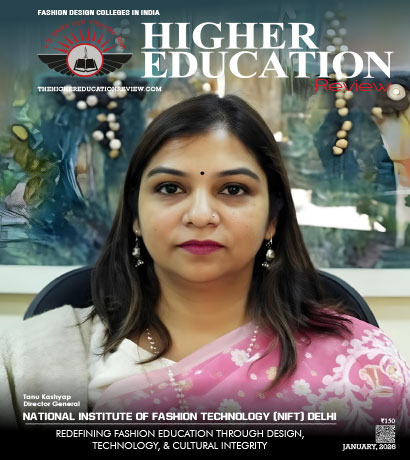Bridging the Gap

Prof. Chandrakant Y. Nimkar, Dean - Business Analytics and Statistics Welingkar Institute of Management Development & Research
'Data' has become complex with labor-saving technologies being introduced in data acquisition and storage. What is new today becomes obsolete the next day. Such is the pace of technological advancement these days. These changes are bringing disruption at the educational, professional and industrial level. There are no doubt those institutions who impart data analytical skills find it challenging to cope up with the pressure created by fast obsolescence.
Today, every organization is overloaded with data. Data generation is increasing at an exponential rate. This has created a phenomenal demand for data analytics. It has led to a mad rush among select professionals to acquire data analytical skills today. However, there lies a wide gap between demand and supply of such skilled man power across the world.
With our future dictated by Artificial Intelligence, many jobs hitherto done by human beings will be done by machines. Accuracy combined with higher productivity at reduced cost is already the driving force that is making Artificial Intelligence inevitable. It has formed an imbalance between skills that are in demand and skills that are readily available. Unless we take corrective measures the employment scenario will become a serious social issue.
The rising discipline of 'Business Analytics'
covers a vast area of business irrespective of industries. It studies data collection process, data storage process, data extraction process and data analysis process. Today data that is available in an organization is too voluminous and unstructured or without any standard or known pattern. Thus the conventional methods of data analysis which assume that data is structured are not suitable. This has resulted in finding out advanced methods for analyzing unstructured data. Such methods are generally called Algorithms. There is a high demand for professionals who can develop newer Algorithms.
Technologies emerging in Business Analytics need the element of communication, among different entities. It has created concern for data security. This area is also challenging as latest technologies are being introduced by various vendors calling for suitable methods to keep data secured. This is another area where the demand for skilled people will be always remain high.
The need for storing large volumes of data also calls for hardware capable of storing and handling big data. Chip designers are devising new ways to design a customized hardware where gestation period of development is quite high.
The rising discipline of 'Business Analytics' covers a vast area of business irrespective of industries
With fierce competition, disruptive innovations and changing business models it has become imperative to be able to measure the possible scenarios at any given time and predict future events, design some of them and respond in real time to survive. This leaves us with an unquenchable thirst to learn how to make sense of the huge and dynamic data, information and knowledge and take bold decisions about the future.
Training our young minds to develop in the areas of quantitative techniques at basics and advanced levels has gained prominence. A wide variety of Analytics technologies ranging from SPSS to SAS and open source technologies including statistical programming languages are relevant to most businesses. Qualitative research techniques and design thinking approach is recognized by professionals to tap unique opportunity spaces and breakthrough solutions. More and more businesses are looking at information design to transform data into very intuitive infographics and visual analytics solutions. B-Schools with a strong business foundation offer study of Analytics in the form of core courses similar to other PGDM programs are noting the functional areas of a business and industry specific issues. This places the study and research for data as an important vertical for businesses which operate in the business to business / business to consumer areas.
This leaves us with a question on how do we, as citizens of a country having huge potential but short of resources move ahead. The solution lies in the roadmap that needs to focus in direction of importing knowledge from developed countries. Collaborations between credible national and international educational entities should seal the deal. Such tie-ups should mainly cover faculty exchange and academic material exchange. Research Institutes doing basic research should qualify for autonomy and power so that research can be used for commercial purpose. Co-ordination between academic institutes and private organizations could be made more effective for creating commercial IT and Analytics products. Infrastructure for electronic communication needs to be laid down across Indian States. Joint ventures between Indian companies and International companies could be encouraged through incentives.
Study of data is indeed the need of the hour. Most businesses and IT professionals need to wake up and smell the coffee.
Prof. Chandrakant Y. Nimkar
Prof. C. Y. Nimkar is currently Dean-Business Analytics and Statistics, WeSchool. He has been teaching for last 18 years in the area of Analytics and optimisation. He has an extensive 30 year experience in leading market research companies for multiple research projects.
Today, every organization is overloaded with data. Data generation is increasing at an exponential rate. This has created a phenomenal demand for data analytics. It has led to a mad rush among select professionals to acquire data analytical skills today. However, there lies a wide gap between demand and supply of such skilled man power across the world.
With our future dictated by Artificial Intelligence, many jobs hitherto done by human beings will be done by machines. Accuracy combined with higher productivity at reduced cost is already the driving force that is making Artificial Intelligence inevitable. It has formed an imbalance between skills that are in demand and skills that are readily available. Unless we take corrective measures the employment scenario will become a serious social issue.
The rising discipline of 'Business Analytics'
covers a vast area of business irrespective of industries. It studies data collection process, data storage process, data extraction process and data analysis process. Today data that is available in an organization is too voluminous and unstructured or without any standard or known pattern. Thus the conventional methods of data analysis which assume that data is structured are not suitable. This has resulted in finding out advanced methods for analyzing unstructured data. Such methods are generally called Algorithms. There is a high demand for professionals who can develop newer Algorithms.
Technologies emerging in Business Analytics need the element of communication, among different entities. It has created concern for data security. This area is also challenging as latest technologies are being introduced by various vendors calling for suitable methods to keep data secured. This is another area where the demand for skilled people will be always remain high.
The need for storing large volumes of data also calls for hardware capable of storing and handling big data. Chip designers are devising new ways to design a customized hardware where gestation period of development is quite high.
The rising discipline of 'Business Analytics' covers a vast area of business irrespective of industries
With fierce competition, disruptive innovations and changing business models it has become imperative to be able to measure the possible scenarios at any given time and predict future events, design some of them and respond in real time to survive. This leaves us with an unquenchable thirst to learn how to make sense of the huge and dynamic data, information and knowledge and take bold decisions about the future.
Training our young minds to develop in the areas of quantitative techniques at basics and advanced levels has gained prominence. A wide variety of Analytics technologies ranging from SPSS to SAS and open source technologies including statistical programming languages are relevant to most businesses. Qualitative research techniques and design thinking approach is recognized by professionals to tap unique opportunity spaces and breakthrough solutions. More and more businesses are looking at information design to transform data into very intuitive infographics and visual analytics solutions. B-Schools with a strong business foundation offer study of Analytics in the form of core courses similar to other PGDM programs are noting the functional areas of a business and industry specific issues. This places the study and research for data as an important vertical for businesses which operate in the business to business / business to consumer areas.
This leaves us with a question on how do we, as citizens of a country having huge potential but short of resources move ahead. The solution lies in the roadmap that needs to focus in direction of importing knowledge from developed countries. Collaborations between credible national and international educational entities should seal the deal. Such tie-ups should mainly cover faculty exchange and academic material exchange. Research Institutes doing basic research should qualify for autonomy and power so that research can be used for commercial purpose. Co-ordination between academic institutes and private organizations could be made more effective for creating commercial IT and Analytics products. Infrastructure for electronic communication needs to be laid down across Indian States. Joint ventures between Indian companies and International companies could be encouraged through incentives.
Study of data is indeed the need of the hour. Most businesses and IT professionals need to wake up and smell the coffee.
Prof. Chandrakant Y. Nimkar
Prof. C. Y. Nimkar is currently Dean-Business Analytics and Statistics, WeSchool. He has been teaching for last 18 years in the area of Analytics and optimisation. He has an extensive 30 year experience in leading market research companies for multiple research projects.

